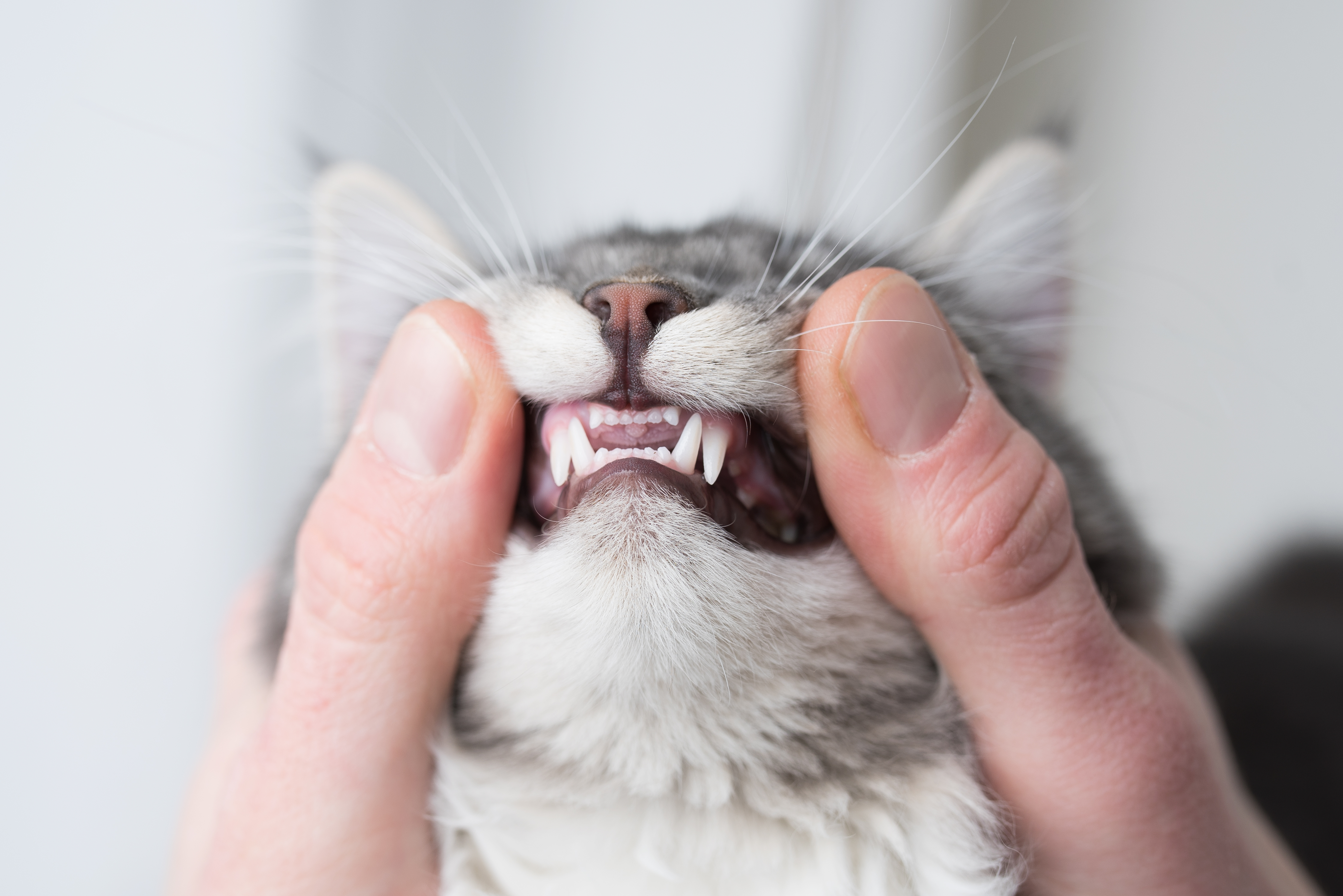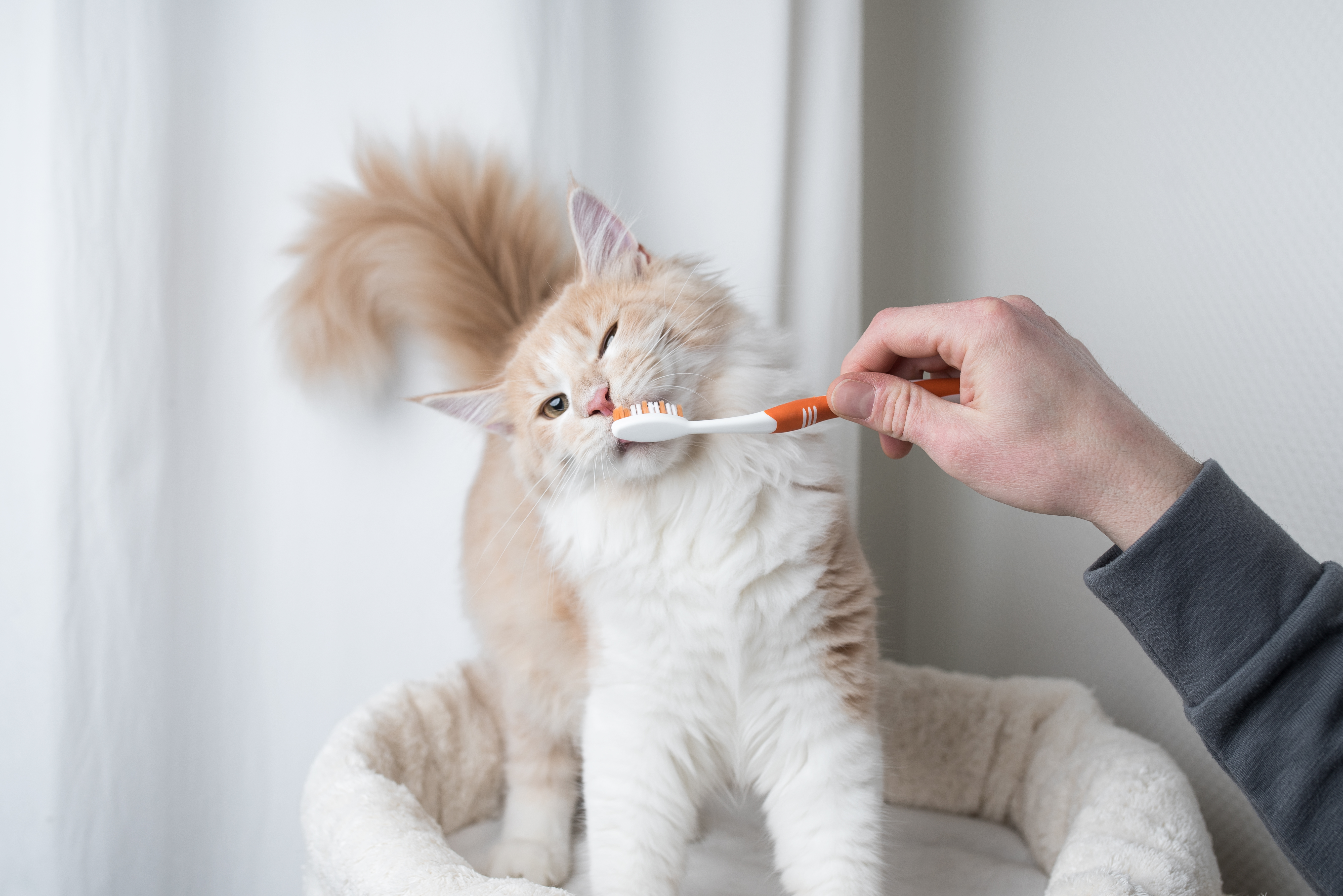
Your Cat's Bad Breath May Be the Start of Something Worse
Many pet owners are familiar with being woken up by their cat resting on their chest or licking their face. Cats don’t always have a sense of boundaries, which gives us owners the less-than-pleasant opportunity to get a whiff of their stinky tuna breath.
Kitty breath never really smells good, but one day, you might get hit with a stench much stronger than you’re used to. This bad breath isn’t normal. In fact, it can indicate the start of a common health problem: gingivitis.
If you notice a pungent odor coming from your kitty’s mouth, that’s a sign you should take a closer look to catch this oral hygiene issue before it worsens.
Gingivitis in cats

Gingivitis is the first stage of periodontal disease, a quite serious disease of the mouth often caused by poor oral hygiene. Fortunately, the condition is reversible. It’s important to take action against gingivitis as soon as you discover it, so it is fully treated and does not worsen over time.
Much like in humans, cats’ teeth accumulate plaque caused by a buildup of food residue, bacteria, dead skin cells and other debris present in the mouth. This buildup is perfectly normal and should be expected. However, unlike humans, cats cannot brush their own teeth, nor do they take well to having their teeth brushed by their owners.
Because of this, plaque can begin to build up in excess, inching from the surface of the teeth to the space between the gums and the teeth. There, the bacteria in plaque can start to destroy healthy gum tissue. Your cat’s gums may try to fight this by becoming inflamed. This is the start of gingivitis.
Unless owners make a habit of inspecting their cats’ teeth, one of the first things they might notice is foul-smelling breath, also called halitosis. Upon physical inspection, gingivitis typically presents inflammation or redness on the very edge of the gum line. As gingivitis worsens, this redness may become more severe, the gum surfaces may start to appear uneven or bumpy and plaque may be visible under the gums. If you attempt to brush your cat’s teeth while they are experiencing gingivitis, the gums may bleed slightly.
Gingivitis can be dangerous in cats for a few reasons. First, if untreated, it can lead to periodontal disease, which is painful for cats and can lead to tooth erosion and loss. Not only will this be painful and irritating to your cat, but it can also rack up a hefty vet bill over the years.
Additionally, problems with the gums and teeth can make eating painful for your cat. Trouble eating can lead to rapid weight loss, lethargy, behavior problems and potentially even fatty liver. Thus, it’s important to contact your vet as soon as you notice the early signs of gingivitis to get the problem rectified and stop periodontal disease in its tracks.
Treating feline gingivitis

Fortunately for cats and pet parents, gingivitis is a treatable and reversible condition. In many cases, it can be effectively managed through at-home and professional dental care.
When you first recognize the signs of gingivitis in your cat, you’ll want to contact the vet to have your pet’s mouth examined. If the gingivitis is minor, you may be able to treat your cat’s condition using an antibiotic dental rinse or at-home brushing. In some cases, cats may need to have the existing plaque removed through a professional cleaning.
After the initial forms of treatment, you’ll want to continue to administer dental care to ensure your cat’s gingivitis does not return. Prevention methods may include:
- Routine brushing: Although cats don’t take well to having their teeth brushed at home, they can be trained to accept the routine over time. Brushing your cat’s teeth a few times a week (but ideally once per day) can help remove plaque and prevent the formation of tartar to keep their teeth in great condition.
- Professional cleanings: Whether you brush your cat’s teeth at home or not, the occasional professional cleaning may be required as your cat ages to ensure hardened plaque is effectively removed.
- Oral supplements: Some natural supplements for oral health may help reduce the growth of bacteria in the mouth and soothe gum irritation caused by gingivitis.
- Dental chews: Some dental chew products may help remove some of the plaque that builds up on your cat’s teeth over time. These are usually not sufficient to keep your cat’s teeth perfectly clean, but they can make a helpful addition to a robust oral hygiene plan.
By paying extra attention to the state of your cat’s teeth and gums, you can help them avoid discomfort, pain and even severe disease as they age. The next time your kitty wants to give you a kiss, take a whiff of their breath to ensure their oral hygiene is up to par.


